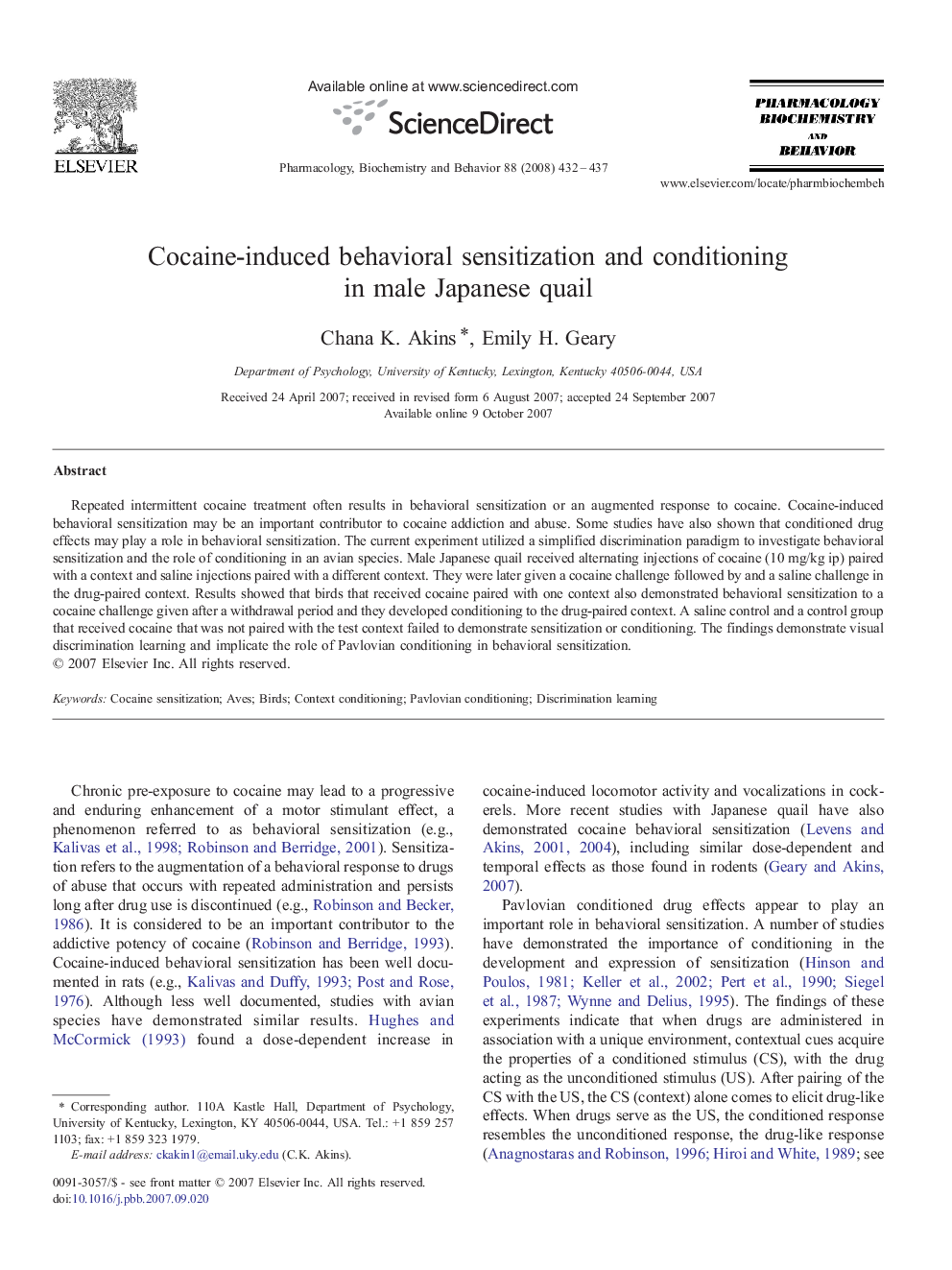| Article ID | Journal | Published Year | Pages | File Type |
|---|---|---|---|---|
| 2014000 | Pharmacology Biochemistry and Behavior | 2008 | 6 Pages |
Repeated intermittent cocaine treatment often results in behavioral sensitization or an augmented response to cocaine. Cocaine-induced behavioral sensitization may be an important contributor to cocaine addiction and abuse. Some studies have also shown that conditioned drug effects may play a role in behavioral sensitization. The current experiment utilized a simplified discrimination paradigm to investigate behavioral sensitization and the role of conditioning in an avian species. Male Japanese quail received alternating injections of cocaine (10 mg/kg ip) paired with a context and saline injections paired with a different context. They were later given a cocaine challenge followed by and a saline challenge in the drug-paired context. Results showed that birds that received cocaine paired with one context also demonstrated behavioral sensitization to a cocaine challenge given after a withdrawal period and they developed conditioning to the drug-paired context. A saline control and a control group that received cocaine that was not paired with the test context failed to demonstrate sensitization or conditioning. The findings demonstrate visual discrimination learning and implicate the role of Pavlovian conditioning in behavioral sensitization.
